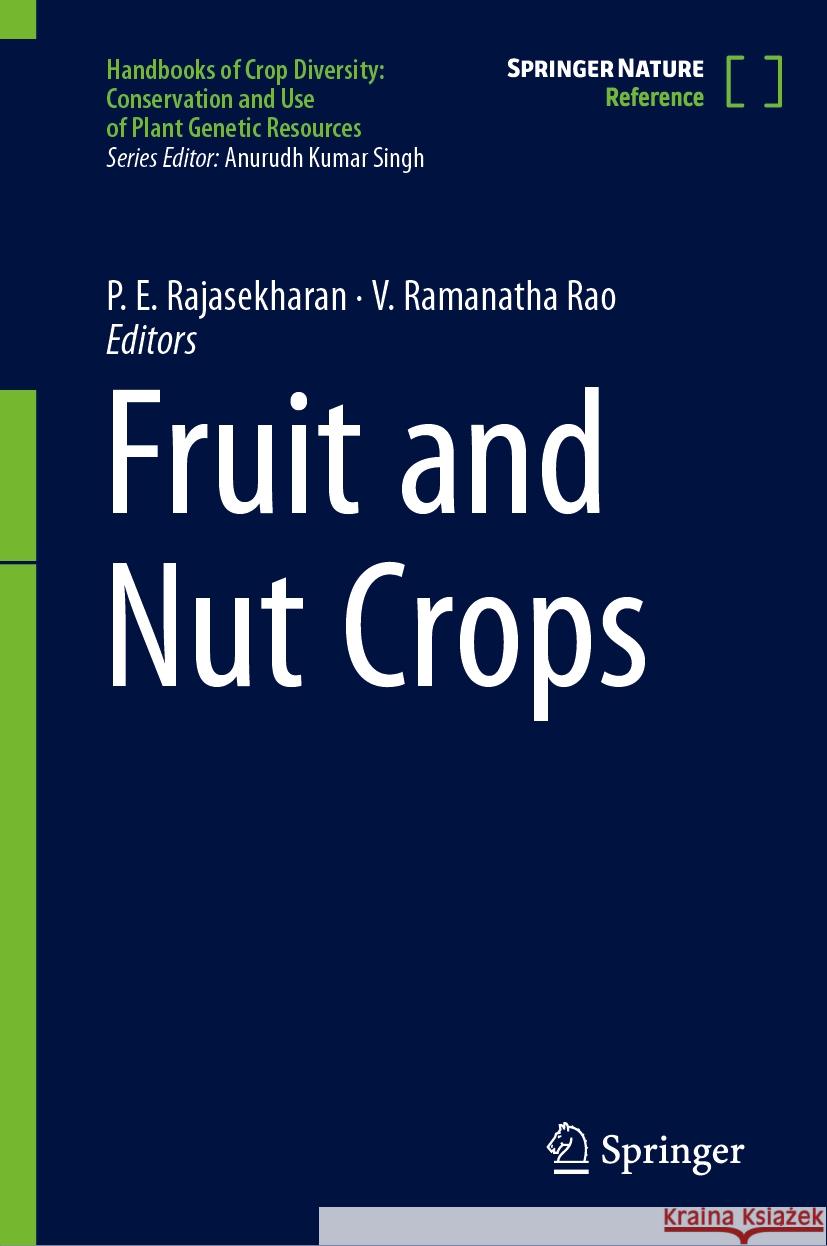Fruit and Nut Crops » książka



(netto: 1070,96 VAT: 5%)
Najniższa cena z 30 dni: 1079,53
ok. 22 dni roboczych.
Darmowa dostawa!
Apple Malus pumila Mill.- Black currant, Ribesnigrum L.- Strawberry, Fragariaspp.- Grape, Vitis vinifera L.- Prunus spp.: Prunus amygdalusBatsch, Almond; Prunus armeniacaL., Apricot; Prunus persica(L.) Batsch., Peach & others - Papaya Pyrus Spp.- Pyruscommunis L., Pear & other Pyrus spp.- Banana Species - Guava, Psidiumguvjava L.- Litchi, Lychee, LitchichinensisSonn.- MangoMangiferaindica l. and other Mangifera spp.- Oranges and other citrus fruit, Citrus spp.- Pomegranate, Punicagranatum L. – Walnut - Cashew nut - Custard apple, Annona squamosa L. &otherAnnona spp.- Date palm, Phoenix dactylifera L., - Fig, FicuscaricaL. & other Ficusspp.- Phyllanthus emblica L - Java plum, Syzygiumcumini (L.) Skeels, and Syzygium spp.- Aegle marmelosL., Bael.- Capparis decidua (Frosk.) Edgew, Ker.- Cordia myxaRoxb., Lasoda.- Carissa carandasL., Karonda.- Garcinia mangostanaL., Mangosteen; GrewiaasiaticaL., Grewia.- Tamarindusindica L., Tamarind.- Feronia limonia L. Kaith, etc.) - Indian Pear (Pyrus pashia) - Melons (Watermelon, Cantaloupe, Honeydew).
Dr V. Ramanatha Rao, a PhD in Genetics and Plant Breeding from the Indian Agricultural Research Institute (IARI), New Delhi. He started his work on genetic resources of groundnut at the International Crops Research Institute for the Semi-Arid Tropics (ICRISAT, 1976-1989) and established the largest groundnut/peanut, including its wild relatives (Arachis spp.)genetic resources collection and assisted in in their utilization for its improvement.Later he we worked at the International Board for Plant Genetic Resources/International Plant Genetic Resources Institute (IBPGR/IPGRI),presently the Bioversity International, Rome (1989-2007). Dr Rao has worked on various aspects of plant genetic resources conservation and utilization of different crop and forestry species, initially at global level and later more specifically focusing on plant genetic resources of the Asia, Pacific and Oceania. He was Honorary Research Fellow with Bioversity International during 2008-2014. During his long years of work on plant genetic resources, he has enriched the knowledge base on plant genetic diversity; conservation and use methods of tropical fruits, underutilized crops, forest genetic resources;ex situ and in situ (on-farm) conservation; use of plant genetic resources for improving livelihoods of rural poor; use of modern technologies for genetic diversity studies; enhancement of utilization of conserved germplasm and human resource development projects/activities.In addition, he helped in either establishing or improving national plant genetic resources programmes in several countries in Asia and trained several researchers. He has over 300 publications, including several book chapters and edited books. He continues to give guest lectures and edits manuscripts for severalinternational peer reviewed journals. Areas of Expertise: Agriculture, Plant Genetic Resources, Agrobiodiversity
Dr. P.E.Rajasekharan is a Principal Scientist at the ICAR Indian Institute of Horticultural Research Bangalore. Dr. Rajasekharan completed his PhD in in vitro conservation of threatened medicinal plants at the Department of Botany, Bangalore University and is known for his contributions to the area of Plant Genetic Resources, i.e. in vitro conservation and cryopreservation of horticultural crops. Also holding 3 Post graduate Diploma one in Intellectual Property Rights from National Law School of India University and Post Graduate Diploma in Human Resources Management from Indira Gandhi National Open University (New Delhi) and another Postgraduate diploma in Ecology and environment from Indian Institute of Ecology, New Delhi. He supervised 20 M. Pharm students of Rajiv Gandhi University of Health Sciences. He also written many review articles and book chapters. He participated in various national and international symposia and seminars. In addition, he has developed globally applicable cryopreservation protocols for the conservation of nuclear genetic diversity (NGD) in pollen of important vegetable, ornamental and endangered medicinal species. He also worked on conservation of threatened medicinal plants and established Field Gene Bank for the same. He currently teaches courses on Plant Genetic Resources and Intellectual Property Rights in Agriculture. Dr. Rajasekharan has more than 200 articles and two books to his credit. He is an expert reviewer for several international peer-reviewed journals, and sits on the editorial board of several journals. He is a Fellow of the Indian Society of Plant Genetic Resources and Indian Association for Angiosperm Taxonomy.
1997-2026 DolnySlask.com Agencja Internetowa
KrainaKsiazek.PL - Księgarnia Internetowa









